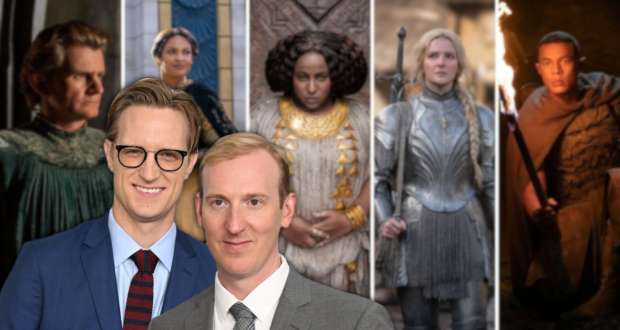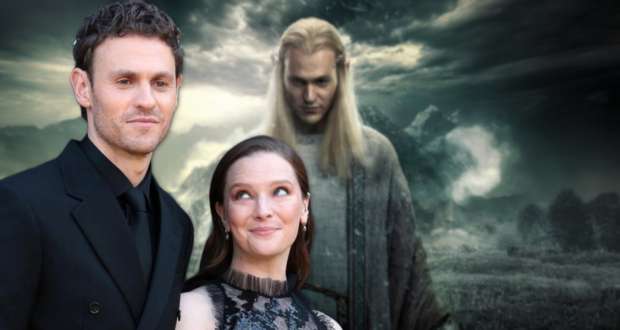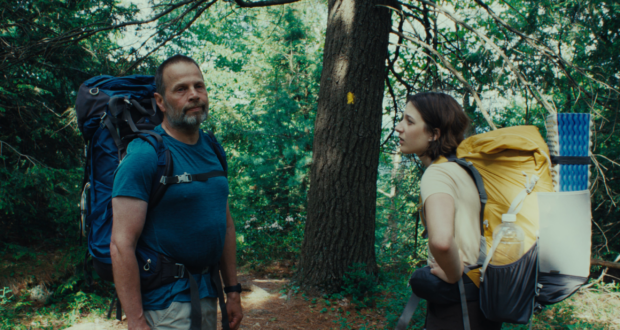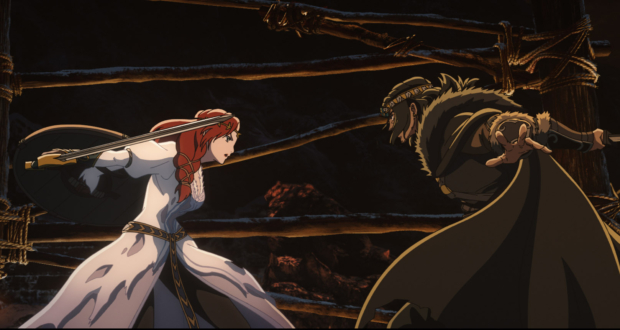Director Stewart Thorndike’s Bad Things promised an intriguing blend of psychological suspense and chilling horror. The story is innocently about a weekend retreat among friends that turns into a gruesome ordeal. Expectations were high for a film that could effectively deliver on its premise. However, despite its potential, Bad Things falls short of its ambitions. The movie ultimately leaves audiences with a mix of frustration and indifference rather than the intended dread and fascination.
The film opens with a picturesque snowy landscape and introduces us to the main characters. There’s Ruthie Nodd (Gayle Rankin), the reserved and seemingly fragile lead. Cal (Hari Nef) is an enigmatic and daring friend. Fran (Annabelle Dexter-Jones) is a pragmatic and level-headed member. Maddie (Rad Pereira) is a cheerful and carefree companion. And lastly, we have Brian (Jared Abrahamson), the love interest with a hidden past. As they gather at a remote hotel, the initial atmosphere is ripe with anticipation and is setting the stage for the promised psychological tailspin.
The Good:
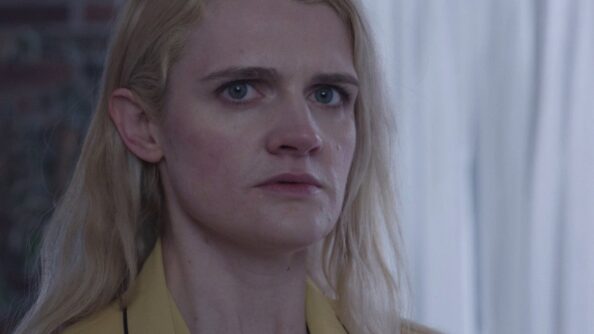
At the outset, the film succeeds in establishing an eerie sense of isolation. The hotel’s desolate surroundings and the juxtaposition of the characters’ camaraderie against the bleak backdrop create an immediate sense of unease. However, as the story unfolds, the tension dissipates rather than intensifies. The film struggles to maintain a consistent tone, oscillating between slow-burning psychological intrigue and abrupt bursts of violence.
Gayle Rankin delivers a commendable performance as Ruthie Nodd, capturing her character’s vulnerability and internal turmoil. Her nuanced portrayal of a woman grappling with her past adds depth to an otherwise thin plot. Unfortunately, the supporting characters lack the same level of development. Hari Nef’s portrayal of Cal comes across as overly contrived. His Performance comes with an inconsistent demeanor that alternates between intriguing and downright puzzling. Annabelle Dexter-Jones and Rad Pereira, as Fran and Maddie respectively, have moments of authenticity, but the script fails to provide them with substantial material to work with. Jared Abrahamson’s Brian falls prey to clichéd writing, embodying the “mysterious stranger” trope without offering any genuine intrigue.
The Bad:
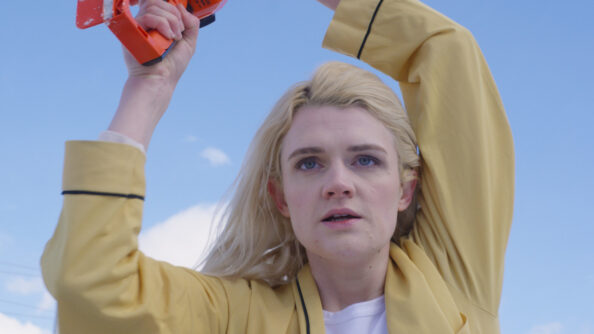
The film’s pacing is a key issue that undermines its impact. Scenes tend to drag on, making even pivotal moments feel like filler content. The central mystery surrounding Ruthie’s traumatic past is stretched thin, failing to sustain the audience’s interest. The flashbacks, meant to shed light on her history, come across as disjointed and fail to evoke the empathy necessary to invest in her plight. Instead of empathizing with her struggles, we are left disconnected, which ultimately hinders any emotional investment in the story’s outcome.
One of the most glaring missteps of Bad Things is its reliance on shock value over genuine suspense. While horror films often use moments of gore to elicit a reaction, they are most effective when balanced with a well-crafted buildup of tension. Unfortunately, the film seems to prioritize graphic violence over cohesive storytelling, resulting in a disjointed narrative that fails to land the intended impact. The scenes of bloodshed, while visually disturbing, lack the necessary buildup and emotional investment to truly terrify the audience.
In addition to its narrative shortcomings, the film’s visual execution falls short of its potential. The snowy landscape and the hotel’s interiors provide a promising canvas for atmospheric horror, yet the cinematography fails to fully capitalize on these settings. The camera work often feels uninspired, missing opportunities to create a sense of claustrophobia and paranoia. The occasional use of distorted angles and dim lighting attempts to convey unease. The issue is that these techniques come across as forced rather than organically integrated into the visual storytelling.
Stewart Thorndike’s direction, while ambitious in its attempt to fuse psychological exploration with horror elements, struggles to find a cohesive voice. The film’s third act takes a jarring turn into supernatural territory, further diluting the sense of grounded tension that the story needed. The pacing issues that plagued the earlier segments persist, and the climax fails to deliver a satisfying payoff after the meandering buildup.
Overall:
Bad Things fails to live up to its intriguing premise and the potential of its talented cast. While Gayle Rankin’s performance brings depth to the lead character, the film’s inconsistent tone, sluggish pacing, and reliance on shock value ultimately undermine its impact. The lack of character development and disjointed storytelling leave audiences emotionally disconnected from the unfolding nightmare. Despite its attempts at psychological intrigue and chilling horror, Bad Things falls into the unfortunate category of missed opportunities, leaving viewers more frustrated than genuinely frightened.
Bad Things Review: A Frosty Descent into Mediocrity
-
Acting - 6.5/10
6.5/10
-
Cinematography/Visual Effects - 5/10
5/10
-
Plot/Screenplay - 4/10
4/10
-
Setting/Theme - 6/10
6/10
-
Watchability - 5/10
5/10
-
Rewatchability - 4/10
4/10



